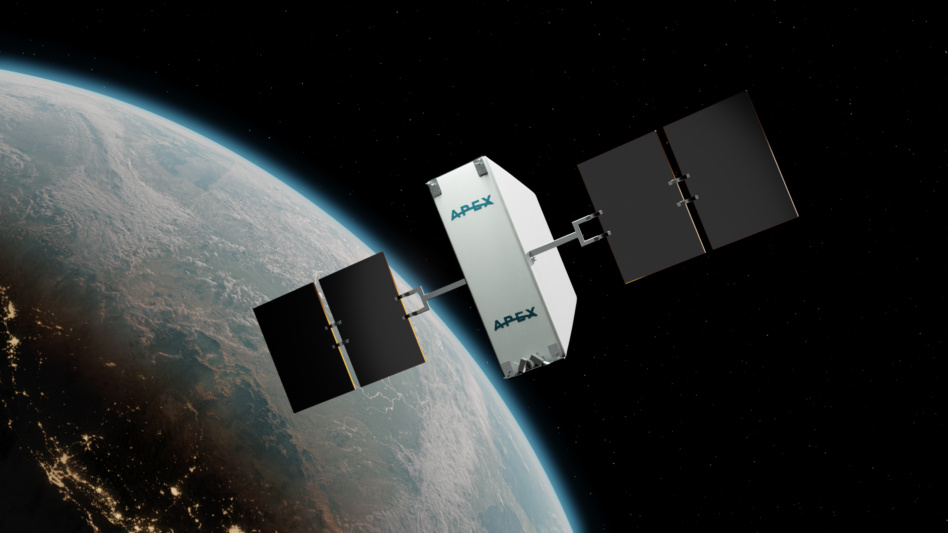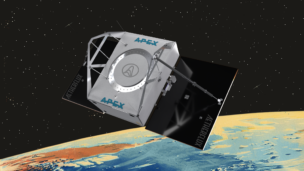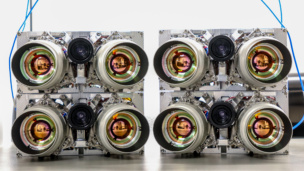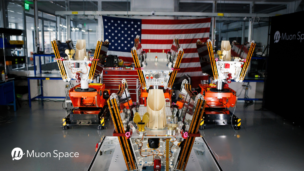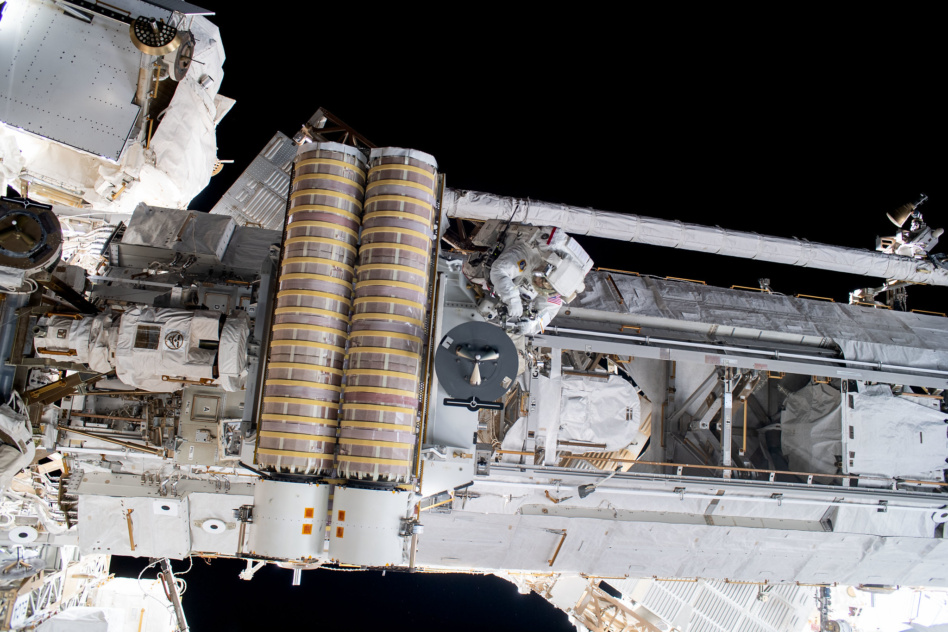Apex unveiled its new spacecraft bus built for GEO today in a bid to extend the productized business model it built in LEO to a higher orbit.
The base model of the GEO Aries bus—a 200-kg ESPA-class vehicle—will cost $13.5M, substantially less than other products on the market, CEO Ian Cinnamon told Payload. While the new bus seeks to maintain Apex’s commitment to quick delivery, transparent low pricing, and dependability, some things are different in the GEO bus—namely, new radio tech and more hardening against the stronger radiation in GEO.
Why GEO? The LA-based startup developed the GEO bus in response to customer demand, Cinnamon said.
“What we realized over the last almost two years…was a good number of customers started saying, ‘OK great. I want a proliferated, attritable low-Earth orbit system, but I am finally willing to rethink my architecture on the GEO side,” he said. “In LEO, in order to do this productized satellite bus, you needed to modify your payload to work with the satellite….In GEO…because it costs a lot more to get there, you really want a system that is perfectly tailored—however, that is changing.”
Mission set: The GEO bus already has its first US government customers, though Cinnamon declined to name names. He said the company is in talks with other commercial and government customers looking at using the bus, which is a good fit for missions including communications and sensing.
Cinnamon said part of the value proposition for customers is that the design is heavily based on Apex’s Aries bus in LEO, which flew for the first time on Transporter-10 and is operating in space today.
What’s next: Apex expects to deliver the first GEO Aries buses to customers in about two years to fly at the end of 2026, Cinnamon said.
